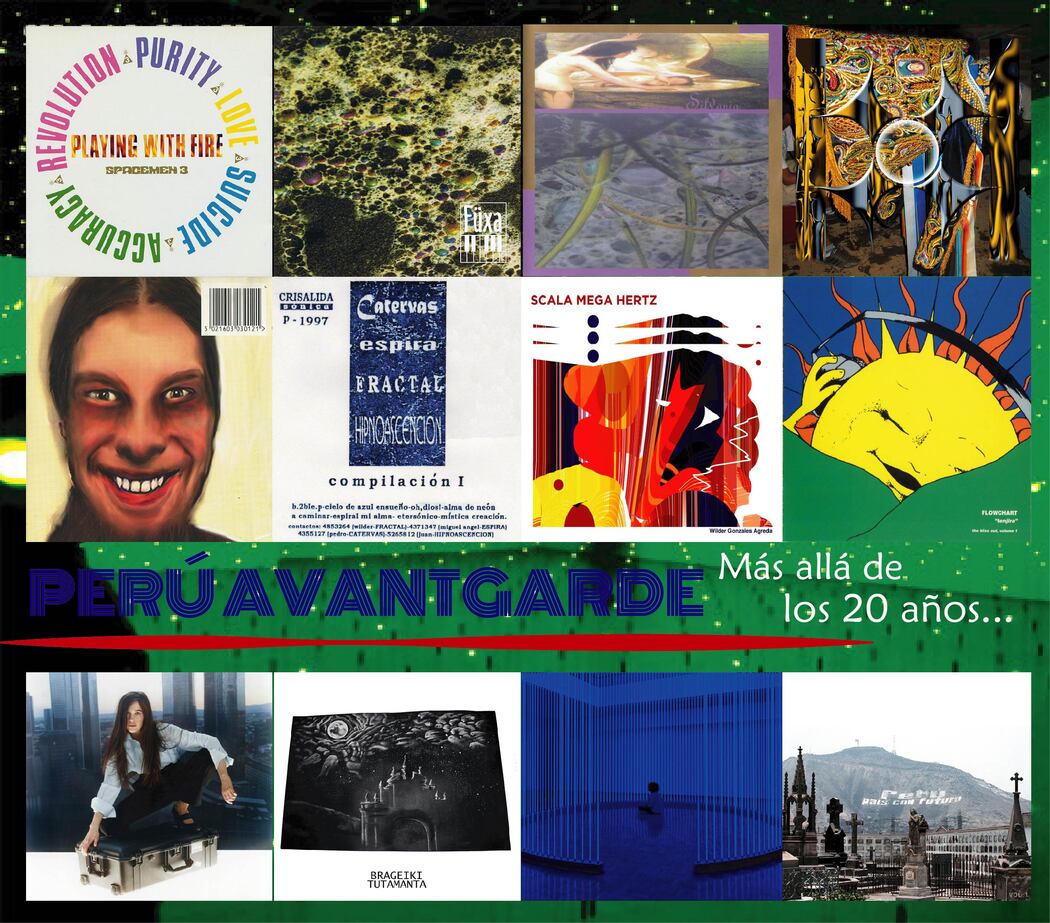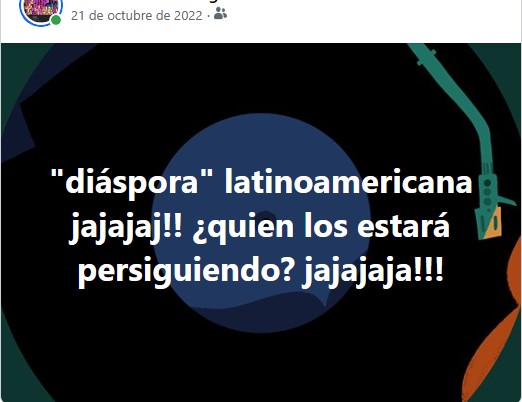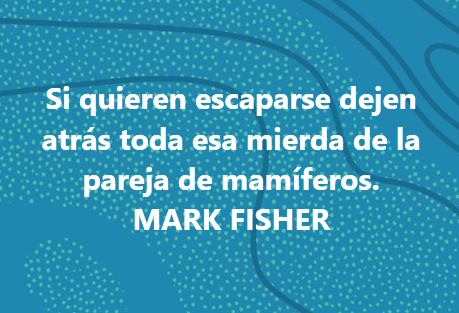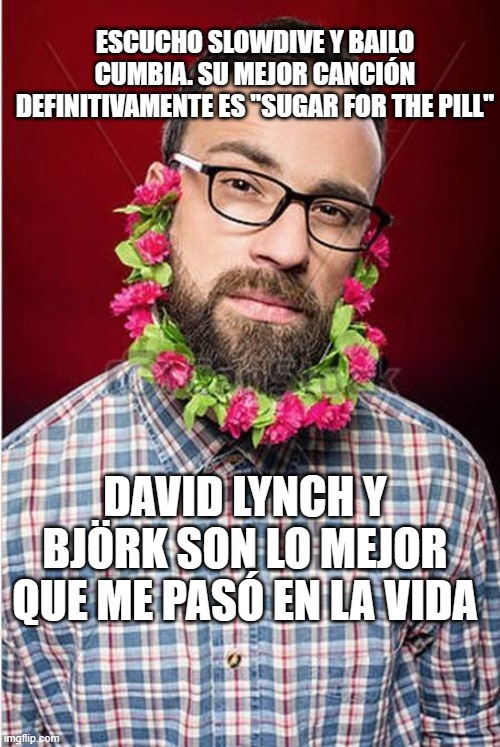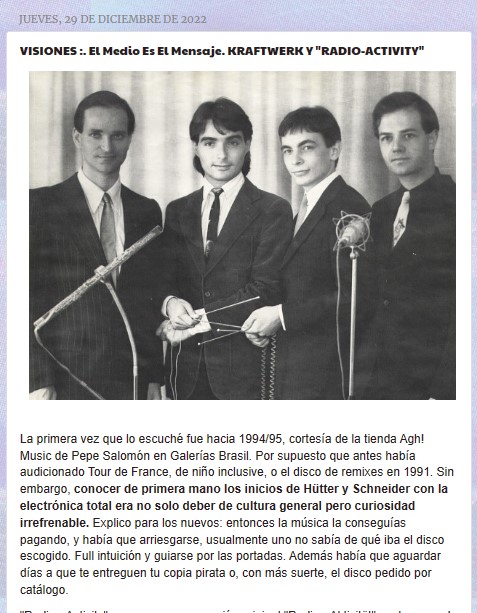Mejor conocido como Ekoplekz, Nick Edwards (1969) es un creador que desde el año 2010 ha elaborado una generosa discografía de exploración electrónica y ritmos intransigentes para sellos como Planet Mu, Seagrave y Mordant Music. Creció bajo el parteaguas del post punk y los efluvios de la neo psicodelia y las raves y en su música refleja su filiación hacia bandas del porte de Cabaret Voltaire, E.A.R. y toda la escena IDM. Hace no muchas lunas canceló Ekoplekz para dar salida a una seguidilla de releases bajo su nombre civil en Bandcamp. Mantiene además otros proyectos como eMMplekz (con Baron Mordant), Ekoclef (con Bassclef), Ensemble Skalectrik, PLKZFX, etc. Nos conectamos hasta Bristol (UK) para charlar un poco con él y ver qué fluye de uno de los cerebros más lokos del momento.
¿Por qué sigues haciendo música experimental en este mundo jodido donde las artes y la cultura son menos importantes?
Pregunta interesante. No creo que el arte y la cultura sean menos importantes ahora, pero es cada vez más difícil concentrarse en lo que es importante en una era de sobrecarga de información. Intento ser fiel a mis creencias y mantener un nivel personal de gusto que me ayude a navegar a través de toda la escoria. Y siempre seguiré trabajando. No porque sea importante para el arte o el comercio, sino porque me impulsa la necesidad de crear. Seguiría haciéndolo incluso sin audiencia.
Cuando eras adolescente, ¿qué músicos o discos captaron tu atención?
Mi adolescencia fue la década de 1980. Había mucha música que odiar, pero también mucho que amar. Al principio estuve en Ultravox y The Human League, luego descubrí Kraftwerk, Cabaret Voltaire y New Order. También el electro y el hip hop eran géneros nuevos que me intrigaban, especialmente Mantronix. Luego vino el acid house, pero también el rock experimental de Spacemen 3, The Young Gods y AR Kane.
Pero probablemente el disco que tuvo el mayor impacto fue una reedición del álbum debut de Suicide de la década anterior que salió en 1986. Eso realmente me llevó a la idea de que la música electrónica podía sonar realmente cruda y sucia.
Tienes una larga carrera como Ekoplekz. ¿Qué álbum te hace sentir más orgulloso que los demás? ¿Por qué decidiste cerrarlo y empezar de nuevo esta vez con tu nombre real?
Probablemente el álbum del que estoy más orgulloso es Intrusive Incidentalz Vol.1 de 2011. Porque era totalmente intransigente pero parecía tocar la fibra sensible de mucha gente. Recibió muy buenas críticas y, a juzgar por algunos comentarios que recibí, fue bastante inspirador para algunos otros artistas electrónicos que buscaban romper con géneros restrictivos.
Dejé el nombre de Ekoplekz porque sentí que había agotado ese sonido por el que era conocido después de 10 años. También mi casetera de cuatro pistas estaba rota y decidí no reemplazarlo. Ahora grabo digitalmente, por lo que el sonido es más limpio. Ya no es Ekoplekz, pero está bien. Hice más que suficiente bajo ese nombre
A veces, tener artefactos más baratos te hace cavar más tu cerebro. Cuéntanos acerca de tu equipo cuando comenzó Ekoplekz y el material que usas ahora en 2021.
Siempre he trabajado con material bastante barato. Comencé con un viejo órgano de transistores que compré de segunda mano, agregando pedales de guitarra y efectos y fue creciendo a partir de ahí. Pero ahora uso deliberadamente equipo más moderno, en lugar de material antiguo o sintetizadores que emulan sonidos "clásicos". Quiero trabajar con nuevos diseños y ver a dónde me llevan. Mis favoritos en este momento son Arturia Microfreak y Dreadbox Typhon.
¿Te gustan las raves o la música electrónica para ellas?
Me gustaba la música rave cuando era más joven, a principios de los noventa. Luego, más tarde, entré en la escena del dubstep temprano. Pero no tengo ningún interés en la música rave / dance actual. Ahora tengo casi 52 años, así que supongo que me estoy volviendo un poco mayor para esas cosas.
¿Qué haces para pagar las facturas? ¿Qué pasa con la situación en el Reino Unido bajo el corona?
Nunca he dependido de la música para mi principal ingreso y puedo trabajar desde casa, por lo que no me está afectando económicamente, pero tanto COVID como Brexit han destruido los medios de vida de tantos involucrados en la escena musical aquí en el Reino Unido. Nunca ha habido un peor momento para ser artista aquí. Va a ser muy difícil durante algún tiempo. Incluso cuando se alivien las restricciones de COVID, este gobierno hará las cosas muy difíciles, y estoy bastante seguro de que es un ataque deliberado a las artes, a pesar de que la industria de la música es una gran parte de nuestra economía. Pero quieren que todos los músicos se vuelvan a capacitar. ¿Cómo qué? ¿Qué otros trabajos quedan ahora? Es una locura.
¿Cómo ha cambiado Bristol desde los días de Massive Attack, Tricky y Flying Saucer Attack hasta hoy?
Realmente no sigo muy de cerca la escena musical de Bristol en estos días. Pero lo que he notado es que muchos de los artistas más nuevos que están surgiendo son mucho más experimentales y están menos preocupados por encajar en los viejos estereotipos del género. Es posible que haya tenido alguna influencia en eso. Cuando comencé, Ekoplekz era muy diferente a la cultura de clubes que prevalecía en la ciudad. Introduje la idea de la electrónica de hardware improvisada en vivo en un momento en que la mayoría tocaba y producía música de baile formulada en computadoras portátiles. Pero también creo que la gente está ahora más expuesta a influencias más amplias en Internet. Y los sintetizadores de hardware han tenido un gran regreso. El equipo modular asequible tiende a fomentar una mentalidad más experimental. Las cosas son más abiertas en general, menos tribales.
¡Tus planes futuros!
Mis planes actuales son seguir trabajando sin sentir ninguna necesidad de liberar nada a toda prisa. Actualmente no estoy involucrado con ningún sello discográfico, por lo que este año mi única salida para grabaciones de estudio en solitario es una presentación mensual en la estación de radio por Internet The Neon Hospice. La radio me parece un medio nuevo en este momento y se adapta más al ritmo de mi trabajo que el antiguo modelo de "un álbum al año", que todavía está muy arraigado en el antiguo sistema de la industria musical.
También espero volver a tocar en vivo nuevamente cuando las restricciones de COVID lo permitan, particularmente en un entorno de improvisación con otros artistas, en lugar de solo un show individual. Nunca me ha interesado realmente simplemente entretener a la gente. Tocar en vivo debe ser una aventura creativa que otros puedan optar por observar. Pero volviendo a lo que dije antes, será casi imposible tocar en el extranjero ahora debido a los problemas con el permiso de trabajo de Visa después del acuerdo del Brexit. Es una vergüenza para mí, ya que siempre disfruté tocar para el público europeo, pero para otros significará una gran pérdida de ingresos.
Las oportunidades para la música experimental en vivo nunca fueron tan buenas en el Reino Unido, la cultura predominante es muy convencional y conservadora, así que no soy tan optimista, pero espero que todavía haya algunos lugares interesantes para tocar aquí.
ESCUCHA/CHEKA EL PROGRAMA DE RADIO DE NICK EDWARDS ACÁ!!
A CONVERSATION WITH NICK EDWARDS A.K.A. EKOPLEKZ:. There has been no worse time to be an artist in the UK than now
Better known as Ekoplekz, Nick Edwards (1969) is a creator who since 2010 has produced a generous discography of electronic exploration and uncompromising rhythms for labels such as Planet Mu, Seagrave and Mordant Music. He grew up under the watershed of post punk and the effluvia of neo psychedelia and raves and in his music reflects his affiliation with bands such as Cabaret Voltaire, E.A.R. and the entire IDM scene. Not many moons ago he canceled Ekoplekz to launch a series of releases under his civil name on Bandcamp. He also maintains other projects like eMMplekz (with Baron Mordant), Ekoclef (with Bassclef), Ensemble Skalectrik, PLKZFX, etc. We connected to Bristol (UK) to chat a bit with him and see what flows from one of the craziest brains of the moment.
Why do you continue making experimental music in this fucked up world where arts and culture is the less important?
Interesting question. I don’t think that art and culture are less important now, but it’s increasingly hard to maintain some focus on what’s important in an age of information overload. I try to stay true to my beliefs, and maintain a personal level of taste that helps me navigate through all the dross. And I will always continue working. Not because it’s important for art or commerce but because i am driven by the need to create. I would still be doing it even without any audience.
As a teen what musicians or discs captured your attention?
My teens were the 1980s. There was a lot of music to hate, but a lot to love as well. Early on I was into Ultravox and The Human League, then discovered Kraftwerk, Cabaret Voltaire and New Order. Also electro and hip hop were new genres that intrigued me, especially Mantronix. Then came acid house, but also experimental rock from Spacemen 3, the Young Gods and AR Kane.
But probably the record that had the biggest impact was a reissue of Suicide’s debut album from the previous decade that came out in 1986. That really got me into the idea that electronic music could be really raw and dirty sounding.
You have a long career as Ekoplekz. What album makes you feel more proud than the others? Why did you decide to close it and to start again this time under your real name?
Probably the album I am most proud of is Intrusive Incidentalz Vol.1 from 2011. Because it was totally uncompromising yet seemed to strike a chord with a lot of people. It got some really good reviews and judging from some comments I received, it was quite inspirational to a few other electronic artists looking to break out of restrictive genres.
I dropped the Ekoplekz name because I felt I had exhausted that sound I was known for after 10 years. Also my cassette four track was broken and I decided not to replace it. Now I record digitally, so the sound is cleaner. It’s not Ekoplekz anymore, but that’s okay. I did more than enough under that name.
Sometimes having cheaper artifacts make you dig your brain more. Tell us about your equipment when you started Ekoplekz and the stuff you use now 2021.
I have always worked with fairly cheap gear. I started with an old transistor organ I bought second hand, adding guitar and fx pedals and it grew from there. But now I deliberately use more modern gear, rather than old stuff or synths that emulate ‘classic’ sounds. I want to work with new designs and see where they take me. My favourites at the moment are the Arturia Microfreak and Dreadbox Typhon.
Do you like raves or electronic music for them?
I was into rave music when I was younger, in the early nineties. Then later I got into the early dubstep scene. But I don’t have any interest in current rave/dance music. I’m nearly 52 year old now, so getting a little old for that stuff I guess.
What do you do for paying the bills? What about the situation in UK under corona?
I have never relied on music for my main income and am able to work from home so it’s not effecting me financially, but both COVID and Brexit have destroyed the livelihoods of so many involved in the music scene here in U.K. There has never been a worse time to be an artist here. It’s going to be very difficult for some time to come. Even when COVID restrictions are eased this Government is going to make things very tough, and I’m pretty sure it’s a deliberate attack on the arts, even though the music industry is a huge part of our economy. But they want all the musicians to retrain. As what? What other jobs are there left now? It’s insane.
How Bristol has changed since the days of Massive Attack, Tricky and Flying Saucer Attack till today?
I don’t really follow the Bristol music scene too closely these days. But what I have noticed is that many of the newer artists coming up are a lot more experimental and less concerned with fitting into the old genre stereotypes. It’s possible I had some influence on that. When I first started, Ekoplekz was very different to the prevailing club culture in the city. I introduced the idea of live improvised hardware electronics at a time when most were deejaying and producing formulaic dance music on laptops. But also I think people are more exposed to wider influences on the internet now. And hardware synths have made a big comeback. Affordable modular gear tends to encourage a more experimental mindset. Things are more open-ended in general, less tribal.
Your future plans!
My current plans are to keep working without feeling any need to release anything in a hurry. I am not currently involved with any record labels, so this year my only outlet for solo studio recordings is a monthly showcase on the internet radio station The Neon Hospice. Radio feels like a fresh medium to me right now and suits the pace of my work more than the old ‘one album a year’ model, which is still very rooted in the old music industry system.
I also hope to get back into playing live again when COVID restrictions permit, particularly in an improvisation setting with other artists, rather than just a solo show. I’ve never really been interested in simply entertaining people. Playing live should be a creative adventure that others may choose to observe. But coming back to what I said earlier, it will be almost impossible to play abroad now due to the Visa work permit issues following the Brexit deal. This is a shame for me as I always enjoyed playing for European audiences, but for others it will mean a major loss of earnings.
Opportunities for live experimental music were never that great in the U.K., the prevailing culture is very mainstream and conservative, so I am not that optimistic but hopefully there will still be a few interesting venues for me play here.
LISTEN/CHECK OUT NICK EDWARD'S RADIO SHOW HERE!
